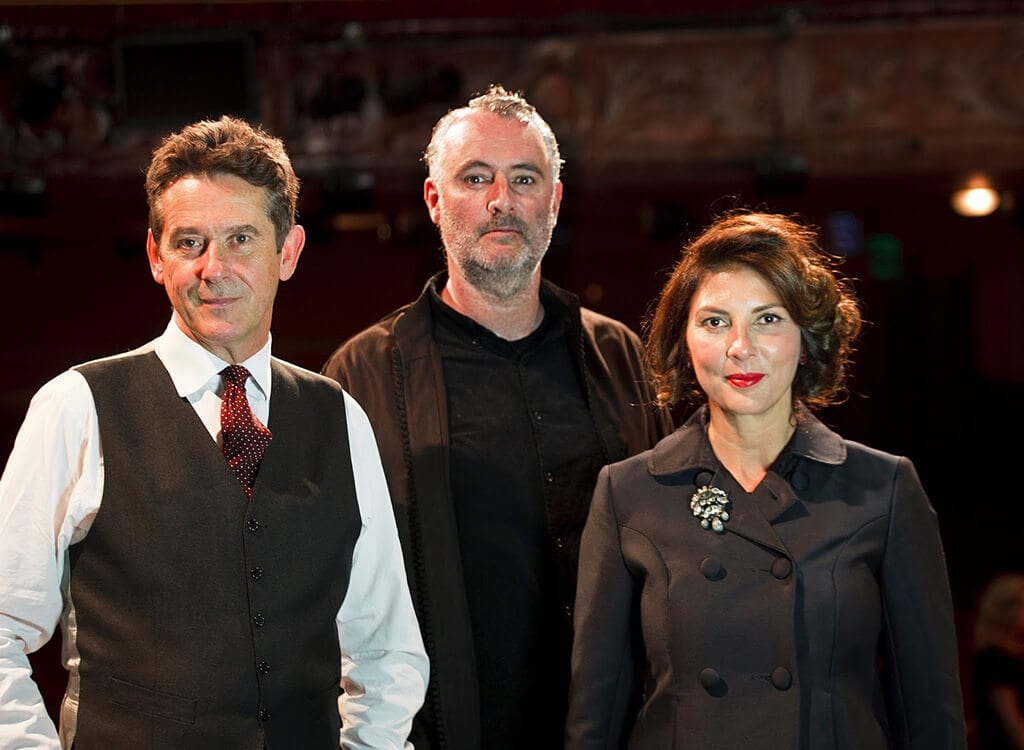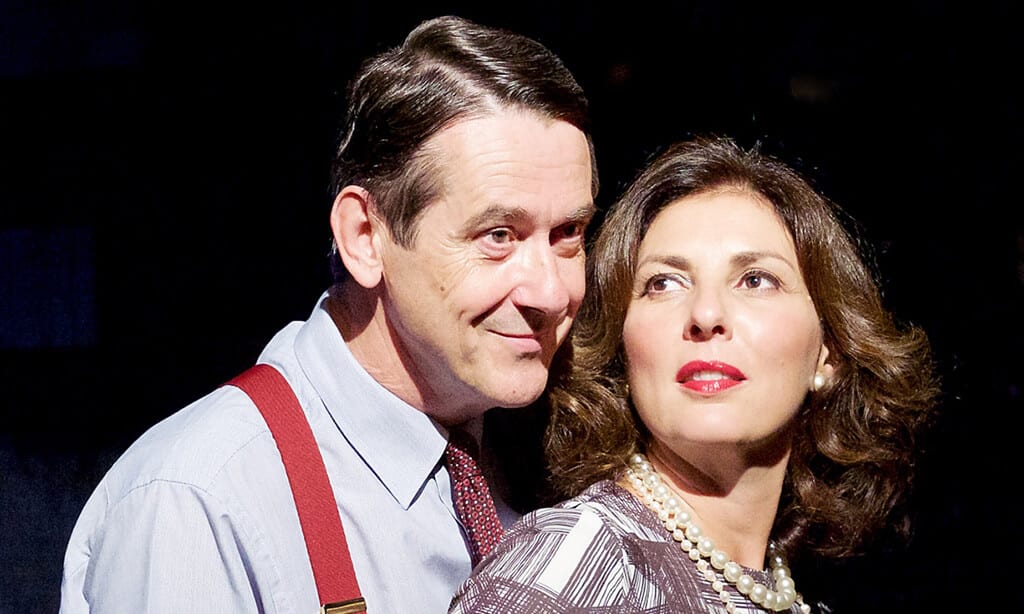Where does one start with this hero of a production? Under the steady direction of Alice Hamilton it achieves so much in just over two hours that it is difficult to know where to begin. Here’s a brief summary then: it’s 1960, and Orson Welles, Laurence Olivier, Kenneth Tynan, and Joan Plowright have all gathered to stage Ionesco’s absurdist Rhinoceros. But things start to go even more awry with the appearance of Olivier’s estranged wife, the legendary Vivien Leigh.
The characters of Pendleton’s play suffer from a surfeit of neurosis, but Hamilton manages to rein it all in, and the production’s balance persists. Everyone is egotistical, maddeningly talented but also charismatic, pleading and irresistibly appealing. You cannot not help but love them. Their retorts are lighting quick, burning with wit and all delivered with an American brashness. Nothing is truly insulting (“nothing personal!”), everything is a quip and an attempt to one-up the other. Though the play is a backstage story, one has the sense that everyone is still acting, that they never really hang up their actor-selves at the door. Olivier remarks with a scowl and a wink, “Isn’t this interesting, Mr Tynan?”, hinting that everything and everyone is always entertainment. Then, in a stunning twist, Olivier’s phone conversation with Leigh morphs into everyday argument, an old one, that continually frustrates the both of them. This is a play of cycles and frames, where art imitates real life, and real life art; actors are directors, directors are actors, and everyone is a player.
The play’s European premiere surely benefits from an incredible cast, with stars and heavyweights carrying the heaving abundance of the play’s complexity. Bennet plays legendary critic Kenneth Tynan splendidly, and was possibly my favourite of the night; he carries his awkwardness with precision, all New York ease and self conscious of his stammer. Ford’s Plowright was a little bland at times, too nice for a world in which Olivier exists, but she also exudes an elegance and a strength that prevented her character from wilting under the forceful presences of Pendleton’s Welles and Olivier. Hodgkinson, as the play’s eponymous Orson, turned out a performance that was tragic, humorous and exhausting to watch. Your eyes could hardly leave his heaving form, strutting belly-first about the stage and delivering his monologues with a masterful Anglo-American drawl. It was an electrifying performance, and one left with the impression that at times he had transfigured into the Falstaff of his Chimes at Midnight, stultified by the rejection of his king but a blustering force of nature nonetheless. Lukis’s Olivier, in comparison, was a bit underwhelming in the beginning of the play – one expects a sort of majestic robustness to accompany the revered name of Olivier, but what emerges is a little stunted, a little too frail. He is witty, but he is also a little, well, boring. He sheds this in the second half of the play, when he butts heads with Orson and he almost becomes the famously imperious Olivier. But he does not bedazzle and entertain as Welles does; his charisma is a little more forced, a little more strained.
This play is obsessed with legend and celebrity, and trawls the folly of it. Welles and Olivier are both focussed on returning to their own legends, or perhaps to a place where they can surpass their own legends. When Welles and Olivier talk about their Shakespearean careers, they do not invoke the comedies but the kings: the Henrys, the beast general Othello, and (most importantly) Macbeth, who was both king and monster. They are creatures of ambition and vulnerable egos the size of mountains, but the world is moving on and they are stuck in nostalgia. Welles wants back to a time when he wasn’t haunted by the spectre of Citizen Kane, and Olivier wants his youth and kingly majesty back. They hate each other and use their stories as weapons against each other – who had the most success before he became a hasbeen? Success is a bludgeon with which to topple your rival. Both characters are suffused with the same tragedy and fear of Shakespeare’s kings, constantly looking back to the past with grasping fingers even as the present whizzes by.
Which is where Vivien Leigh comes in. She is barely present in the play but she pervades it, haunts the peripheries until she explodes on the scene in the play’s climax. Amidst the entire cast, Leigh is the only one who does not seem to aged or left the bosom of Hollywood, she still dazzles the eye – Welles has gained weight, Olivier is grayed and decked out in a banker’s clothes, Joan is plain and Tynan faded with illness. Leigh is still all red-lipped classic Hollywood seduction poured into a little black dress – Bellman’s performance was impressive, a complex layered act that was manic and charming all at once. Leigh is constantly invoked, called “she,” “Scarlet O’Hara,” “Lady Macbeth,” “Cleopatra” and she becomes a woman out of legend, her career subsuming her entire being; she epitomises all that Welles and Olivier have lost and continue to strive for. But she is that past given form, more legend than person, and clinically insane, and the characters all understand the implicit message that to look back is madness.



